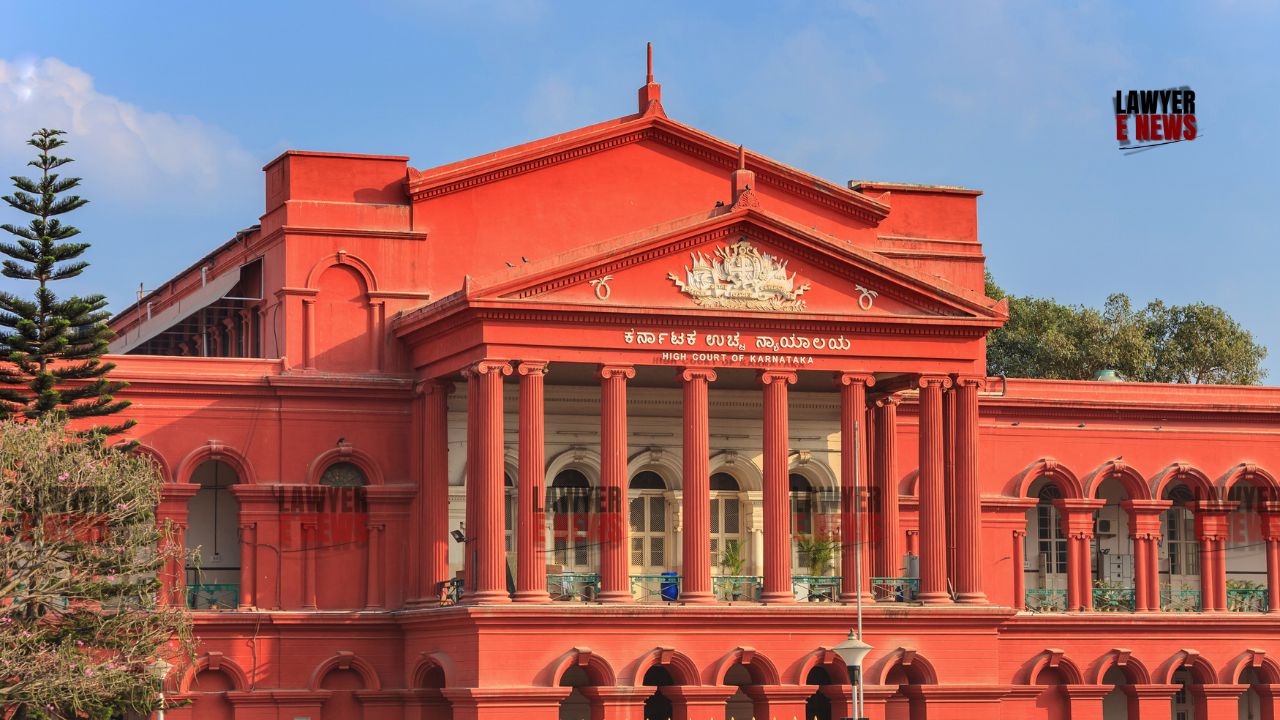-
by Admin
15 February 2026 5:35 AM



"In this digital age, anything spoken does not remain with the person who speaks it. It is circulated within no time." In a recent Judgement, Karnataka High Court dismissed a writ petition filed by Sri V. Sunil Kumar, a sitting MLA, seeking to quash criminal proceedings against him under Sections 499 and 500 of the Indian Penal Code (defamation). Justice M. Nagaprasanna ruled that the alleged defamatory statements made during a post-election rally against Sri Pramod Muthalik were sufficient to warrant a trial, affirming the lower court’s decision to take cognizance of the offense.
The case arose from a public speech made by the petitioner, Sri V. Sunil Kumar, after his electoral victory in May 2023. During a rally on May 14, 2023, Kumar allegedly made defamatory remarks accusing the respondent, Sri Pramod Muthalik, of being involved in criminal activities and questioning his religious authenticity. Muthalik, the national president of the Shri Rama Sena, contested the election as an independent candidate but lost. He filed a private criminal complaint under Section 200 of the Cr.P.C., alleging that Kumar’s statements caused severe damage to his reputation, built over 40 years.
The 42nd Additional Chief Metropolitan Magistrate took cognizance of the complaint on March 20, 2024, and issued summons to Kumar for trial under Sections 499 and 500 of the IPC. Kumar subsequently filed a writ petition in the Karnataka High Court seeking to quash the proceedings, claiming that the statements were made in the context of a political rally and should not attract defamation charges.
The petitioner argued that political speeches during rallies should be protected under freedom of speech, particularly in a democratic society where public figures are subject to criticism.
The respondent contended that the allegations were false, malicious, and intended to harm his reputation. The court observed that while political speech is important, defamatory remarks without factual basis do not fall under protected speech.
"In the garb of dissent being the essence of democracy, speeches should not malign the character of any person unless it is borne out by facts."
The court found that the Magistrate had acted within legal bounds in taking cognizance of the case based on prima facie evidence, including sworn statements and media coverage of the rally.
The High Court rejected Kumar’s argument that the Magistrate lacked jurisdiction or that the proceedings were frivolous.
"A prima-facie case has been made out for proceeding under Sections 499 and 500 IPC."
The petitioner cited precedents from the Supreme Court, such as R. Rajagopal vs. State of Tamil Nadu, to argue that public figures must tolerate a higher degree of criticism. However, the High Court emphasized that the right to free speech does not extend to making unsubstantiated defamatory remarks, particularly when they damage an individual's reputation in the eyes of society.
"Public figures, especially in this digital age, must exercise caution in their statements, as the reach and impact of speech are amplified."
The High Court examined whether the remarks made by the petitioner constituted defamation under Section 499 IPC, which defines defamation as any imputation made with the intent to harm a person’s reputation. The court also reviewed previous judgments, including M.A. Rumugam vs. Kittu alias Krishnamoorthy and Subramanian Swamy vs. Union of India, which established that defamatory statements require proof of malice and harm to reputation.
The court held that trial was necessary to assess the veracity of the petitioner’s claims and the extent of the damage to the respondent's reputation. It emphasized that good faith and public interest, which could serve as defenses in defamation cases, would need to be proven during the trial, not at the stage of quashing proceedings.
The Karnataka High Court's ruling reaffirmed that while freedom of speech is crucial in a democracy, it is not an unlimited right, particularly when it comes to defamatory statements. The court dismissed the petition, clearing the way for the trial to proceed and underscoring the need for public figures to exercise restraint in their statements.
Date of Decision: September 13, 2024
Sri V. Sunil Kumar vs. Sri Pramod Muthalik
